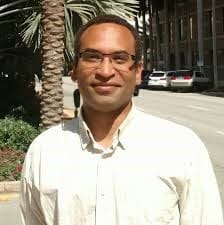
Natural disasters are deadly and costly. They destroy our physical and economic health and reverse any progress we have made. They set us back and dramatically alter our reality into something we never wanted or do not recognize. Disasters also act as mirrors. They show our strengths and bring out the best in us, but they also magnify our physical and social fault lines and force us to recognize our deficiencies.
Over the past 30 years, the footprint of development in the Virgin Islands has increased dramatically, and for a few years, things were going relatively well. However, together we have experienced four major hurricanes, a myriad of storms, floods and droughts. We are currently experiencing another (the third since 2008-09) economic crisis, this one caused by a pandemic.
We have emerged from the disruptions; Virgin Islanders are strong and resilient people who help and care for each other. But the fact remains that after each of these events, our population decreased and our economy shrank. Disasters have repeatedly set us back and changed us.
Unfortunately, things are likely to get worse. Climate change is amplifying the strength and frequency of some hazards and the intensity of their physical and economic impacts. The question of how we prevent these hazards from becoming outright disasters for the health and well-being of the people of the Virgin Islands is becoming more urgent.
We know that we cannot fully predict future shocks and surprises. But we have the power to build a more complete understanding of the socio-economic and natural dynamics of our islands and develop strategies that will reduce transforming disasters into mere disturbances.
To do this, we must take stock of how we are doing as a territory today and address our chronic and acute vulnerabilities. We can do this by improving the robustness of our infrastructure, building the necessary operation and maintenance processes and protect our natural resources.
We can also do this by monitoring the behavior of the constantly evolving infrastructure systems, and by developing skills that will allow us to anticipate and adapt to unexpected events.
Lastly, we need to recognize that comprehensive risk reduction is a collective effort and work with nongovernmental organizations and community partners. In other words, by understanding how we are doing today, through mitigation and resilience strategies implemented by multiple actors, we can reduce risk and ensure we always have access to what we need to thrive.
The Hazard Mitigation and Resilience Plan is creating a framework for comprehensive disaster risk reduction in the USVI. The HMRP seeks to understand how things are going in the territory and asks the question of whether we have the resources and capacities necessary to handle the impacts of future hurricanes, earthquakes, drought, increase in sea-level or rise in temperatures.
The plan evaluates our strengths and weaknesses, and it identifies where and how we can invest in risk management and reduction initiatives. The plan also looks at where we can foster practices and processes that allow us to anticipate issues and adapt during events that sneak in on us.
Finally, the plan evaluates expected major shifts in our development pathways and their impacts on social and natural systems, and it imagines ways in which our territory can positively transform itself in the face of anticipated future developments.
This plan will not be successful without broad participation of relevant governmental or nongovernmental stakeholders like you. Please join us at our upcoming workshop on Nov. 5 and 6 to learn how we are doing and to discuss ways we can sustain long-term risk reduction strategies. And how we can prepare for tomorrow … today.
Editor’s note: Gregory Guannel, Ph.D., is the director of the Caribbean Green Technology Center at the University of the Virgin Islands.





